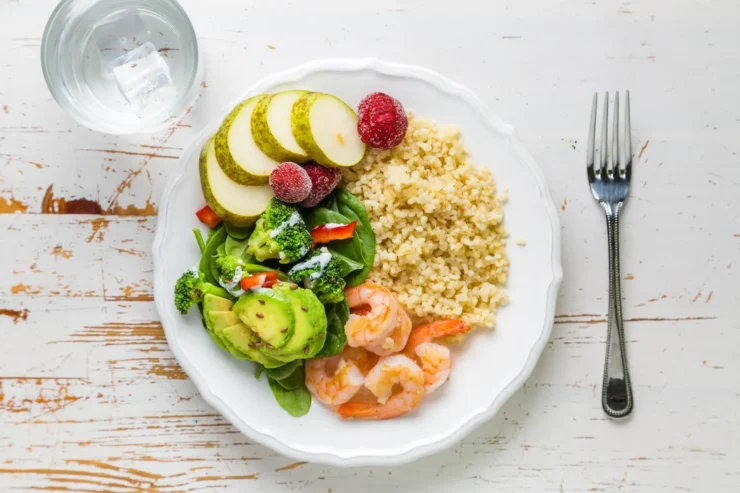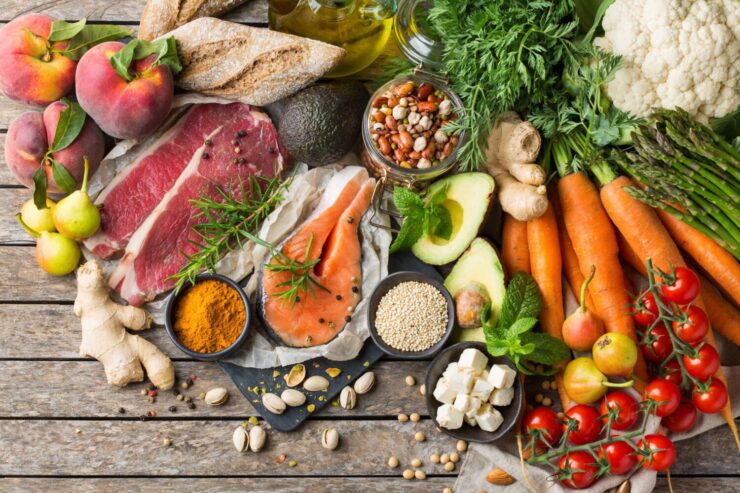The best way to come out of an addiction is to join an alcohol and drug detox center. Your journey to sobriety requires proper fuel. The food that you eat and savor is both literally and figuratively the fuel for your journey. In this article, let us see the important foods and how to achieve sobriety with proper planning of your food consumption. If you are not someone who is aware of the importance of food in addiction recovery, then this article will give you the bird’s eye view of the whole concept. Read till the end without fail.
Fruits & Vegetable Salads are Ubiquitous to Your Recovery

Fruits and vegetables are often overlooked by people who are undergoing a detox treatment. However, these two foods are necessary for a smooth transition from your addiction to a fully healthy and independent life. Fruits and vegetables are rich in vitamins and minerals and hence play an important role in the overall regulation of the body and in proper functioning of the bodily systems. That is why, in an alcohol detox clinic such as Briarwood Detox Center, you get a diet that is rich in fruits and vegetables.
Low Fat & High Protein Diet Helps
Fatty foods and sugary drinks often increase the effects of addiction. These are often called comfort foods and it is for a reason. These foods increase the feeling of goodness when you eat them. As a result, your brain will associate a feeling of safety and comfort during this time. When you eat such foods in a detox center, your mind will not allow you to come out of the addiction. In fact consuming these foods often leads to many other health conditions that require immediate attention. It could lead to coronary attacks, high blood pressure, and diabetics. All these conditions when coupled with your alcohol addiction can turn fatal. So, if you want to detox for alcohol then it is advisable that you stay away from fatty foods and instead consume high protein diets.
Adding Cayenne Pepper Helps in Recovery
Another easy recipe for your addiction recovery is to add cayenne pepper in your foods. These are specific peppers that provide a medium hot taste in your foods. Including these peppers in your daily diet has shown to increase the ability to fight addiction. Cayenne peppers can be added to your daily toasts and omelets. If you are joining an Alcohol Detox Austin Tx center then you will get the best diet from the center itself.
Drink a Lot of Water – It Removes All Habit Forming Substances

Another important aspect of the detox process is water. Water is an essential thing for normal functioning of our body. More importantly water performs the cleansing and detoxing process of our body. All foreign and addictive substances are flushed out of the body by dissolving them in the urine and sweat. So, make sure to drink a lot of water every day. That alone provides the urgent care that you need for coming out of your addiction.
Balanced Nutrition
Emphasizing a well-balanced diet is crucial in addiction recovery. A diet rich in various food groups, including lean proteins, whole grains, healthy fats, fruits, and vegetables, can significantly impact physical and mental health. Lean proteins like fish, chicken, and legumes help in tissue repair and immune function. Whole grains provide essential energy and support gut health, while healthy fats from sources like avocados and nuts contribute to brain health. Fruits and vegetables, loaded with vitamins, minerals, and antioxidants, aid in detoxification and overall body functioning. This balanced approach ensures the body gets a wide range of nutrients necessary for recovery and overall well-being.
Meal Planning
For individuals in addiction recovery, meal planning is a practical tool to maintain a nutritious diet. Start by planning meals weekly, including a variety of foods from different groups. Preparing a grocery list based on this plan can help avoid impulse buys. Incorporate simple, nutrient-rich recipes that don’t require extensive cooking skills. Batch cooking and freezing meals can also be helpful for days when cooking feels overwhelming. Regular meal times help regulate the body’s hunger signals and can stabilize mood and energy levels, which are particularly important in recovery.
Portion Control

Portion control is essential in managing a healthy diet during addiction recovery. It prevents overeating and consuming excessive calories, which can be detrimental to both physical and mental health. Use measuring cups or scales to get familiar with recommended serving sizes. Another practical approach is the “plate method,” filling half the plate with vegetables, a quarter with lean protein, and a quarter with whole grains. Listening to the body’s hunger and fullness cues is also important to avoid overeating. Remember, it’s about quality and balance, not just quantity.
Consulting a Nutritionist
Consulting a nutritionist or dietitian can significantly benefit individuals in addiction recovery. These professionals can create a personalized meal plan that caters to specific nutritional needs, taking into account any deficiencies or health issues stemming from addiction. They can also provide valuable advice on managing cravings and making informed food choices. A nutritionist’s guidance can ensure the diet supports recovery, enhances energy levels, and improves overall health. Insurance plans often cover nutrition counseling, so it’s worth investigating this option.
Mindful Eating

Mindful eating is a practice that involves paying full attention to the eating experience, recognizing the body’s hunger and fullness cues. This practice helps develop a healthier relationship with food, essential in addiction recovery. To practice mindful eating, eat slowly and without distractions like TV or smartphones. Focus on the flavors, textures, and aromas of the food. This approach not only enhances the enjoyment of eating but also helps in recognizing satiety, preventing overeating. Mindful eating can be a powerful tool in understanding and respecting the body’s needs.
Avoiding Triggers
Identifying and avoiding food and drink triggers is important in sustaining addiction recovery. Certain foods, beverages, or eating patterns might be associated with addictive behaviors. For example, sugary foods or caffeinated drinks might trigger cravings or undesirable mood swings. Being aware of these triggers and planning to avoid them can be beneficial. Substitute triggering foods with healthier options. For instance, replace sugary snacks with fruit or herbal teas instead of caffeine. It’s also beneficial to recognize emotional triggers that lead to eating and find healthier coping mechanisms, such as exercise or meditation.

